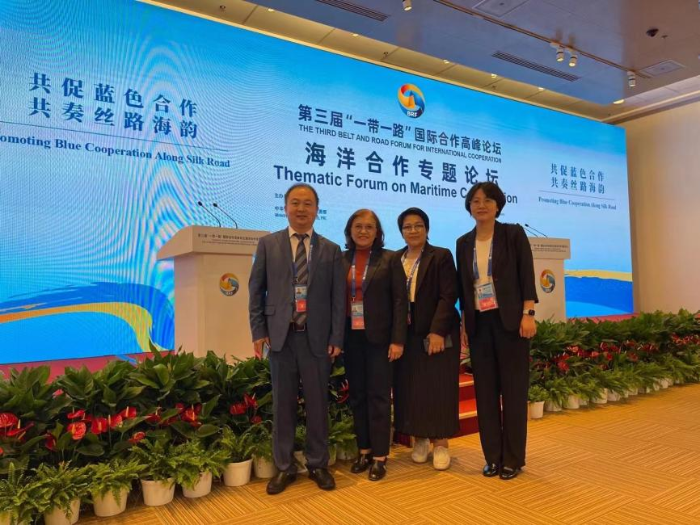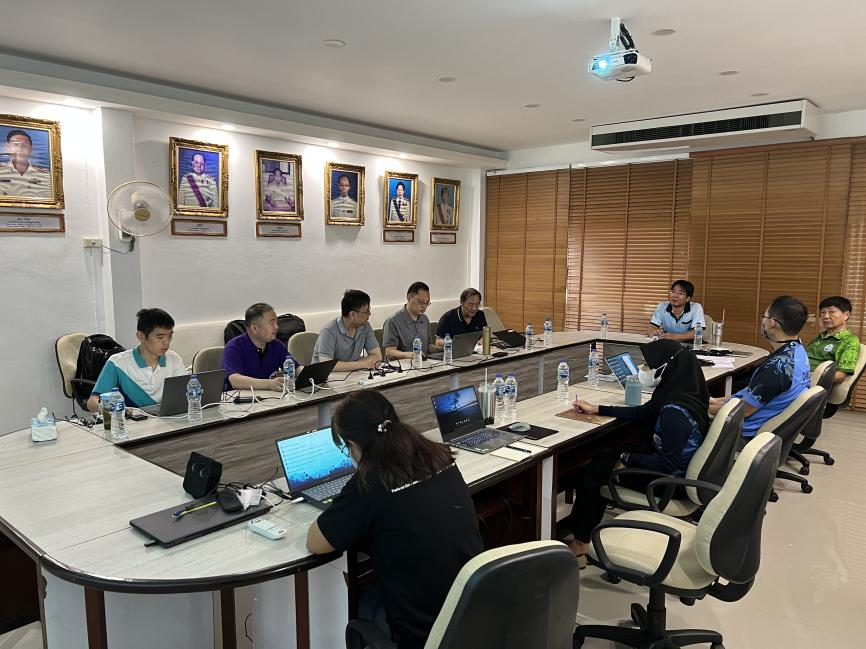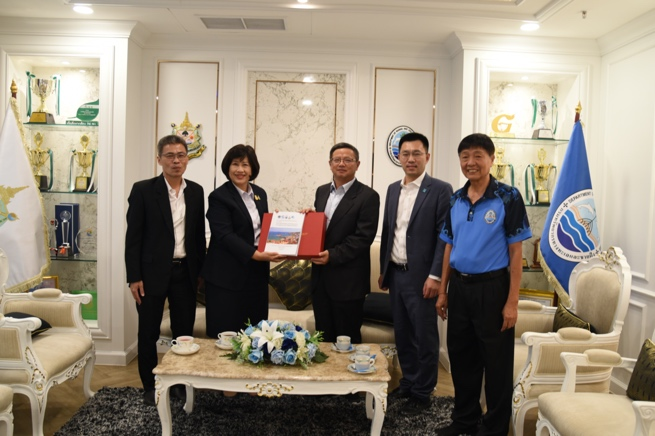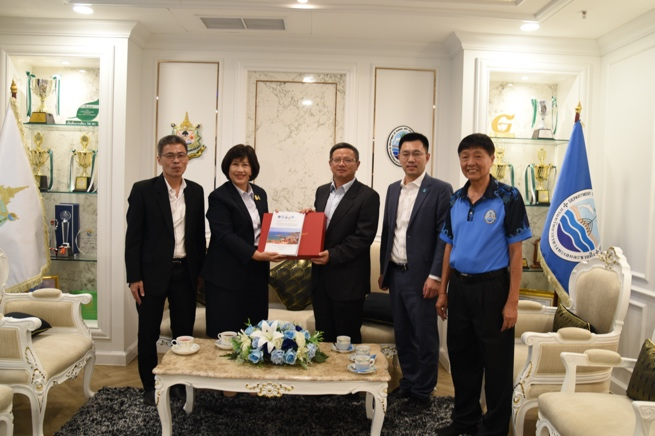FIO Comprehensively Deepens China-Thailand Marine Science and Technology Cooperation to Bolster the Development of the 21st Century Maritime Silk Road
Both China and Thailand are maritime countries. The two nations have reached a consensus in numerous areas, including responding to climate change, protecting marine resources, preventing and mitigating marine disasters, and promoting sustainable development of the ocean. In 2013, the First Institute of Oceanography (FIO) and the Department of Marine and Coastal Resources (DMCR) of the Ministry of Natural Resources and Environment of Thailand co-established the China-Thailand Joint Laboratory for Climate and Marine Ecosystem (hereinafter referred to as “China-Thailand Joint Laboratory”) under the endorsement of higher authorities. The China-Thailand Joint Laboratory is committed to establishing a national platform for marine cooperation between the two governments and comprehensively promoting China-Thailand cooperation in marine science and technology. This year marks the 10th anniversary of the establishment of the China-Thailand Joint Laboratory. With the support of the Ministry of Natural Resources, FIO will host a celebratory event for the 10th anniversary of the establishment of the laboratory in Xiamen from November 8 to 11. This event is designed to honor the collaborative milestones and accomplishments that China and Thailand have achieved together in the field of marine science and technology over the past decade. During the event, both parties will co-host the 11th Steering Committee Meeting and the 7th Joint Committee Meeting of the China-Thailand Joint Laboratory, along with the 12th Workshop on China-Thailand Marine Science and Technology Cooperation. The purpose of these meetings is to share the most recent advancements in marine science and technology cooperation, broaden the scope of China-Thailand cooperation in marine science and technology, and bolster the development of the 21st Century Maritime Silk Road.
The China-Thailand Joint Laboratory has been actively and steadily promoting China-Thailand cooperation in marine science and technology. The laboratory has, under the support of the national platform for marine cooperation, carried out nine China-Thailand marine science and technology cooperation projects and six topics, covering marine biology, physical oceanography, marine geology, marine chemistry, ocean remote sensing, and marine spatial planning. Since April this year, the Laboratory has facilitated six mutual visits between delegations, marking the beginning of a new chapter in marine cooperation between China and Thailand. During the mutual visits, both sides actively fostered practical cooperation in marine research in many fields, resulting in a series of significant advancements.
I. Operation of high-resolution ocean forecast systems
For the first time, FIO installed a maritime search and rescue forecast system at the Phuket Marine Biological Center (PMBC) and upgraded Thailand's high-resolution marine environment forecast system. The improved system covers all the waters of the Gulf of Thailand and the southern Andaman Sea, boasting a horizontal resolution of up to 1/30 of a degree in both latitude and longitude and forecast accuracy aligning with internationally advanced standards. This enables it to be more effective in its application to marine disaster forecasting and early warning, maritime search and rescue, ecological protection, and management of waters and coastal zones in Thailand.
II. Provision of Chinese solutions to marine spatial planning
FIO and DMCR have jointly conducted discussions on marine spatial planning in Chonburi and a joint survey of the region's marine space. Additionally, the Study Report of Marine Spatial Planning in Ko Sichang was handed over to the Thai side. This move has expanded the scope of marine spatial planning from local areas to provinces in Thailand while greatly improving the optimal allocation of marine ecological resources in typical waters and the management of the marine environment in the country.
III. Steady progress in cooperative research on vulnerability of coastal zones
FIO and PMBC have continuously carried out joint research on the vulnerability of coastal zones. They have formulated a cooperative research plan for coastal erosion in Phetchaburi in the northern part of the Gulf of Thailand, collected consistent observational data on seawater intrusion, and effectively assessed the variety and distribution rules of submarine hazards in typical coastal zones within the Gulf of Thailand, which offers robust technological support for the disaster prevention and mitigation in coastal zones.
IV. Effective promotion of large-scale joint survey cruise
Both sides have reached a consensus on conducting China-Thailand joint survey cruise in the Andaman Sea. The expedition will utilize the Chakratong Tongyai, a research vessel from the PMBC, to carry out a multi-disciplinary joint survey encompassing hydrology, ecology, and geology in the Andaman Sea. The objective is to collect high-quality samples and data, enhance bilateral comprehensive marine survey capabilities, and actively advance the marine science and technology cooperation between China and Thailand.

Scientific research representatives from China and Thailand attend the Thematic Forum on Maritime Cooperation during the Third Belt and Road Forum for International Cooperation

Discussion on upgrading the high-resolution marine environment forecast system at the Phuket Marine Biological Center


Handover of the Study Report of Marine Spatial Planning in Ko Sichang at the Department of Marine and Coastal Resources, the Ministry of Natural Resources and Environment of Thailand

Workshop on China-Thailand Marine Cooperation at FIO


